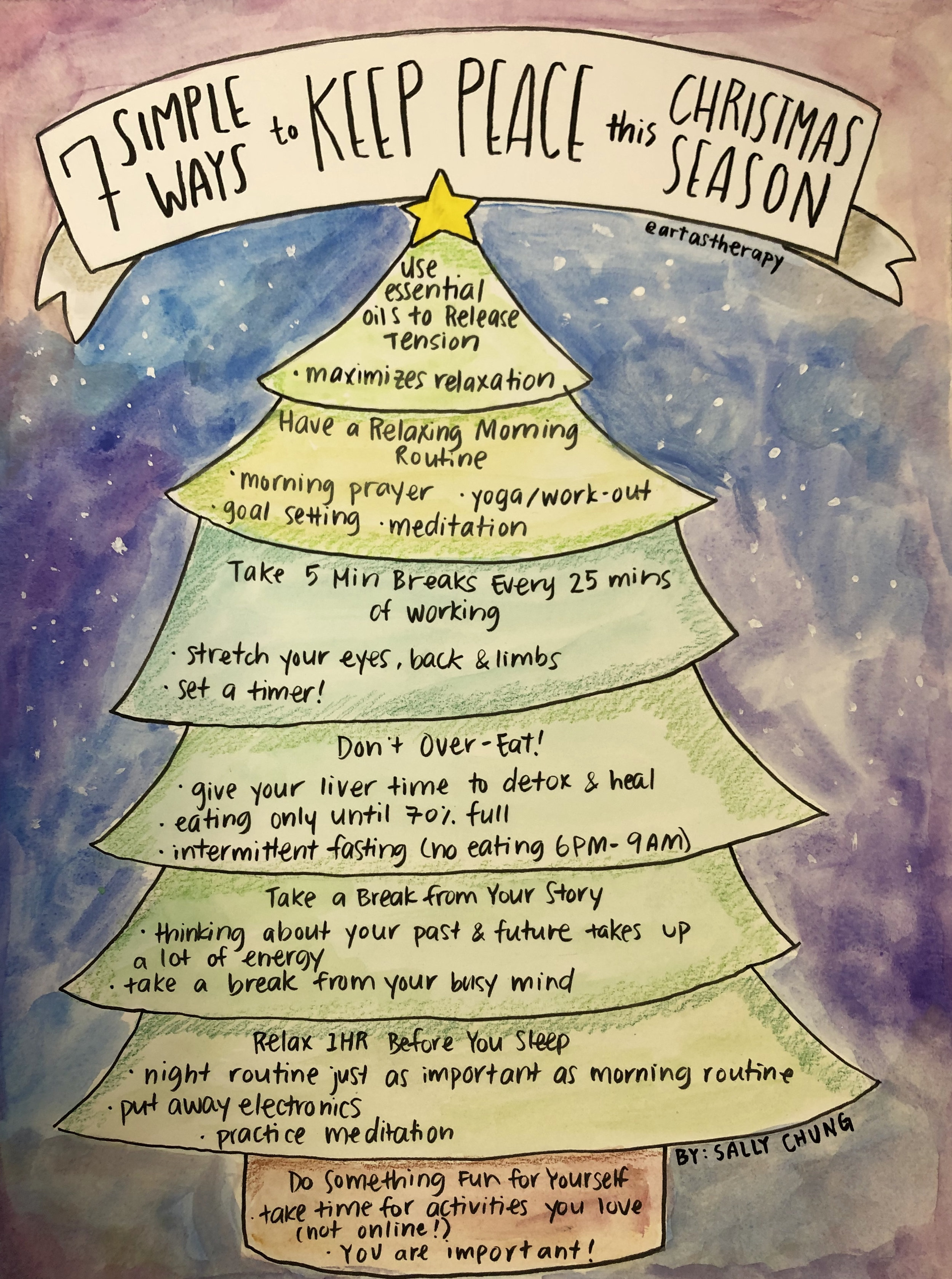Going back to school after summer’s freedom can be tough for some children, sometimes leading to tears, outbursts, difficulty in transitions and other signs of anxiety. If this has been your experience as a parent or caregiver, that’s okay! Having a level of back to school anxiety is normal for most kids. As a way to support families and children before the school year begins, Art as Therapy will be providing a series on back to school anxiety, starting from some practical tips for caregivers on how to support your child before school starts.
Art Therapy support for vicarious trauma: support for social workers
As adults we sometimes forget about taking time to pause and take care of ourselves. This can especially be true for professionals such as social workers who work to tend to other people’s needs. The amount of stress and trauma that the person is exposed to for a prolonged period of time can have a serious impact on the person’s mind, body and their overall wellness.
Vicarious Trauma
Vicarious trauma is a term used to describe a person who is traumatized by witnessing or becoming aware of the trauma of another person. For example, social workers who work in child welfare, this might look like hearing stories of people who have gone through traumatic experiences, reading file notes, and or working with them. Often times in literature, the word vicarious trauma is replaced with words such as compassion fatigue and burnout. Over time, being exposed to high stress and traumatic cases can have a negative impact on wellbeing. It is important to be aware of the signals that our bodies send us and to find healthy ways to tend to those needs to reduce the negative effects.
Art Therapy and Self Care for Caring Professionals
Art therapy can be beneficial for adults as a means of self care, especially for professionals working in high stress environments. Engaging in the process of making something, while talking as well, can provide a client opportunities to gain a deeper understanding of their feelings, reflect on what might be going on for them internally, and feel supported, as they work out how they would like to shift their thoughts and feelings to manage more adaptively. With no prior art making knowledge necessary, clients have the opportunity to tell their unique stories in a safe inviting confidential space. The art therapy process can allow a caring professional to take the time to pause and pay attention to their needs, while honouring all that they give to the children, youth and families they serve.
Art as Therapy therapists are Registered Psychotherapists, psychotherapy sessions are covered by most extended health benefit programs.
You can also visit our instagram, facebook and youtube pages for more information and resources.
Reference: https://www.tendacademy.ca/resources/defining-vicarious-trauma-and-secondary-traumatic-stress/
7 Simple Ways to Keep Peace During the Christmas Season
Guest Blog by Kimberley Milousis
The Christmas holidays are meant to be a time to rest and reflect upon the year and on the loving spirit of Jesus. It's so easy to forget this and get caught up in the stresses of all the food we have to prepare, and gifts we have to buy, and extra places we have to commute to. Here are the ways I refocus on what matters during the holiday season.
1. Have a Relaxing Morning Routine
The way you start your day sets the pace for how the rest of the day will play out. Some powerful habits to cultivate in the morning include: Morning prayers, meditation, breathing, yoga, qigong, stretching, working out, goal-setting, reading a motivating or spiritual text, mindfulness, ... or anything else that gets your body and mind relaxed while focusing your energy on what you will accomplish in the day.
2. Take 5-min Breaks Every 25 mins Working
Taking short breaks frequently during work will do wonders for body and mind. You will notice that by stretching your eyes, your back, and your limbs - and even just giving your mind some down time - you will be happier, relaxed, and surprisingly more productive! Set a timer for 25 minutes whenever you start working, and simply get up and see what's going on with your body for a few minutes whenever the timer goes off.
3. Take a Break from your Story
We lose so much energy thinking! Our minds cost significant biochemical resources to operate. By spending so much of our day thinking about the past or imaginary future situations, we use up a LOT of our daily energy, leading to mental stress, bodily tension, and overall burnout. Take a break from your mind by not buying into the alluring stories your mind makes up. Practice this skill through daily mindfulness and meditation.
4. Use Essential Oils to Help Release Tension
Whenever I feel tense or stressed, I combine mental techniques - like intentional breathing - with physical medicine like essential oils to maximize my relaxation. The best oils I use for relaxing are Lavender Oil, the Peace Oil Blend, and the Serenity Oil Blend. Lavender is known for it's relaxation properties and has been used by natural healers for thousands of years. Both the Peace Oil Blend and the Serenity Oil Blend combine Lavender with other relaxing plants for maximum effect. I use Serenity at night and Peace in the day.
5. Don't Over-Eat
Our Western culture tends to eat way more than we need to, and it's actually incredibly harmful for our bodies. Our live has over 300 different process it does to detox and heal the body, and it can't do any of them if you're digesting food. Intermittent fasting (not eating from 6pm until 9am) and eating only until you're 70% full are both powerful methods for allowing your liver to heal your body. With less energy going into digesting, you'll have more energy to enjoy the rest of your day and you will be less stressed and tired as a result.
6. Take Time to do Something Fun for Yourself
Take time every day to do activities in the physical world (ie. not online) which you genuinely love and enjoy doing. Focus on expressing and being a creator during these times. When you find places you really love to put your energy into, more energy will naturally bubble up from within you so you can keep creating.
7. Focus on Relaxing an Hour Prior to Sleeping
Your night routine is just as important as your morning routine! The night is the time for your body to heal and relax itself so you can be rested and energized for the following day. If you are on technology or are stimulating your body with food or stressful activity, then you won't be doing the healing you so desperately need during the night, because your body-mind will be processing all the other stimulation you just put into it. Take the our before bedtime to do only relaxing and restful activities. A small amount of nightly prayers, meditation, or movement will help you relax deeper as you sleep.
Warmly,
Kimberley
Are you interested in finding out more about essential oils? Visit Kimberley’s Essential Oil page: https://kimberleymilousis.com/essential-oils/
Five simple tips to support a child experiencing back to school anxiety.
Going back to school after summer’s freedom can be tough for some children, sometimes leading to tears, outbursts, difficulty in transitions and other signs of anxiety. If this has been your experience as a parent or caregiver, that’s okay! Having a level of back to school anxiety is normal for most kids. As a way to support families and children before the school year begins, Art as Therapy will be providing a series on back to school anxiety, starting from some practical tips for caregivers on how to support your child before school starts.
What’s the Difference between Art Therapy and an Art Class?
If you’re interested in art therapy or thinking about checking it out, you may be wondering what the difference is between art therapy and an art class. In fact, this is a question we are asked all the time, so we wanted to share some thoughts about it here on our blog.
From our perspective, these are the main differences between art therapy and an art class:
Unlocking Inner Power through Positive Thinking: An Art Therapy Example
This month at Art as Therapy we are unlocking our powers of positive thinking through the use of positive affirmations. At Art as Therapy we believe that our thoughts have the power to change how we feel, how we behave, and ultimately what we believe about ourselves.









